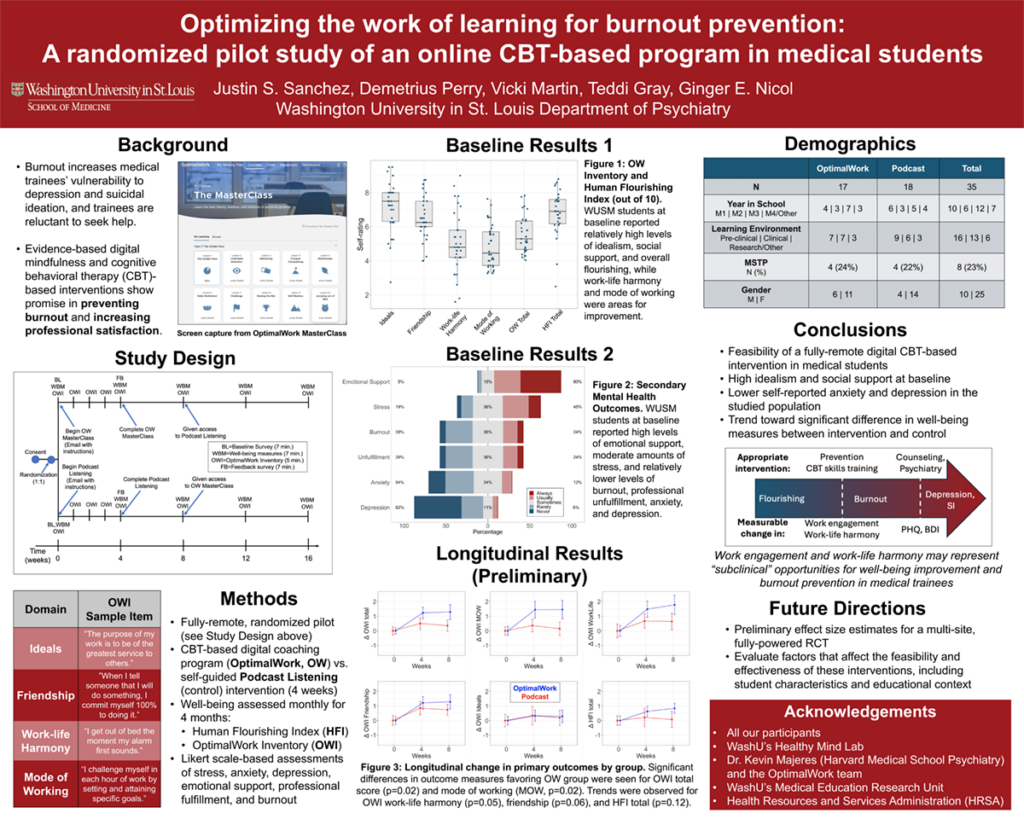
Introduction: Burnout in medical trainees significantly increases their risk of suicidal ideation, and trainees are often reluctant to seek mental health care. Digital mindfulness and cognitive behavioral therapy (CBT) principles are evidence-based preventative strategies for reducing burnout and increasing professional satisfaction. We are conducting a randomized pilot study to assess whether digital interventions for CBT-based training are a feasible way to improve wellbeing and reduce burnout in medical students.
Methods: We are comparing a CBT-based online intervention (OptimalWork) that employs cognitive restructuring, mindfulness, and behavioral activation, with a podcast-listening (control) intervention to promote wellbeing in medical students. Wellbeing is measured via the Human Flourishing Index (HFI,max=100) and the OptimalWork Inventory (OWI,max=240), which assesses idealism, work-engagement, work-life-harmony, and friendships. Higher scores indicate better adaptive functioning. Additionally, Likert-scale-based assessments of stress, anxiety, depression, emotional support, and burnout are being collected at baseline, 4, 8, 12, and 16 weeks.
Results: Enrollment began September 2023. To date, 35 WUSM students (70% female, 27|18|33|22% M1|M2|M3|Other) have been randomized. At baseline, mean HFI was 67(s.d.=13), indicating a relatively high degree of overall flourishing. Mean OWI was 131(24), with only 19%(n=6) and 22%(n=7) endorsing high work engagement and work-life harmony, respectively; 81%(n=26) and 61%(n=19) endorsed high idealism and supportive relationships, respectively. 46%(n=15) reported high (“fairly” or “very often”) stress and 25%(n=8) high work-exhaustion. 78%(n=25) reported high emotional support, 13%(n=4) anxiety, and 7%(n=2) depression. Longitudinal data collection to evaluate intervention effectiveness and relationships between student characteristics, educational context and wellbeing is ongoing.
Impact: These preliminary results demonstrate the feasibility and accessibility of fully-remote digital mental health interventions and suggest that work engagement and work-life-harmony may represent opportunities for health promotion and burnout prevention in medical students.
Organization: Washington University in St. Louis
Sanchez JS, Perry D, Martin V, Gray T, Nicol GE